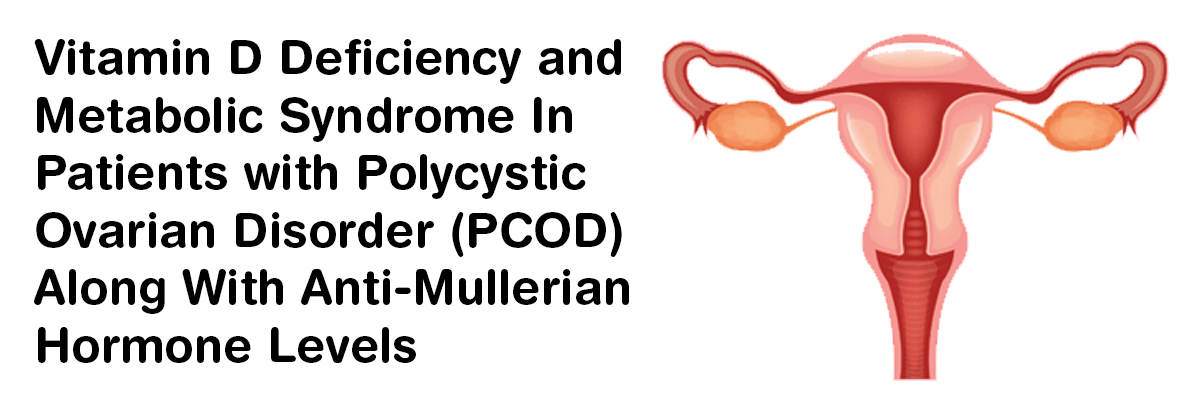
 IJCP Editorial Team
IJCP Editorial Team
Vitamin D Deficiency and Metabolic Syndrome In patients with Polycystic Ovarian Disorder (PCOD) Along With Anti-Mullerian Hormone Levels
Vitamin D supplementation is widely prescribed for many lifestyles related and metabolic disorders. The present study assessed the status of Vitamin D concerning metabolic syndrome and Anti-Mullerian Hormone (AMH, marker of disease severity) levels in PCOD patients in a rural area of Haryana to assess the potential for possible Vitamin D supplementation.
The study enrolled 50 PCOD patients and 50 age-matched healthy controls. It subjected all the participants to clinical examination, anthropometry, lipid profile, fasting glucose, HbA1c, vitamin D and AMH levels.
The study found-
- Significantly higher BMI, waist circumference, fasting glucose, HbA1c, triglycerides, total cholesterol, LDL-cholesterol, and prevalence of dyslipidemia in the study than in control group subjects.
- 34% of patients with PCOD had Metabolic syndrome.
- Significantly lower Vitamin D levels in PCOD patients.
- 72% of PCOD patients and 36% of healthy controls suffered Vitamin D deficiency (< 20 ng/mL).
- Significantly lower Vitamin D levels in PCOD patients with metabolic syndrome than those without metabolic syndrome (12.6±4.71 vs. 20.9±15.32 ng/mL).
- Inverse correlation between Vitamin D levels and AMH levels in PCOD.
This study shows that Vitamin D deficiency correlates with the severity of PCOD and is most severe in patients with PCOD and metabolic syndrome. Thus, assessing vitamin D levels may be helpful, especially in PCOD patients with metabolic syndrome suggesting the possible benefit of vitamin D supplementation.
Bansal P, Yadav K, Kansal R. Vitamin D Deficiency And Metabolic Syndrome In Polycystic Ovarian Disorder (Pcod) Patients Along With Anti-Mullerian Hormone Levels. Journal of Pharmaceutical Negative Results 2022:6163–6172. https://doi.org/10.47750/pnr.2022.13.S07.749

IJCP Editorial Team
Comprising seasoned professionals and experts from the medical field, the IJCP editorial team is dedicated to delivering timely and accurate content and thriving to provide attention-grabbing information for the readers. What sets them apart are their diverse expertise, spanning academia, research, and clinical practice, and their dedication to upholding the highest standards of quality and integrity. With a wealth of experience and a commitment to excellence, the IJCP editorial team strives to provide valuable perspectives, the latest trends, and in-depth analyses across various medical domains, all in a way that keeps you interested and engaged.





















Please login to comment on this article